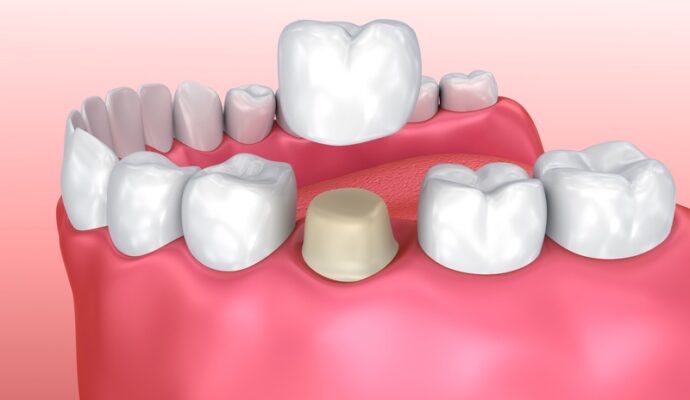Abortion is a topic that often comes with a lot of myths and misconceptions, making it challenging to separate fact from fiction. These misunderstandings can lead to confusion and anxiety for many. Whether someone is considering an abortion or just trying to stay informed, it’s essential to address these myths with clear, factual information. This article will discuss some common misconceptions surrounding abortion and shed light on the real facts, enabling readers to make informed decisions.
Myths About Abortion and the Realities
There are many myths about abortion that persist in society. Understanding the actual facts can help debunk these misconceptions and provide clarity on what abortion truly involves.
Myth 1 Abortion is Unsafe
-
Fact: Abortion is a safe medical procedure when performed by a qualified provider. The risk of major complications is extremely low, especially when performed during the early weeks of pregnancy.
-
Fact: The procedures, whether surgical or medication-based, are carefully regulated to ensure the highest safety standards.
-
Fact: Statistically, abortion has fewer complications than many other routine procedures, such as wisdom tooth extractions or tonsillectomies.
This myth mainly stems from misinformation, and access to safe abortion services is one of the fundamental requirements for ensuring the health and safety of individuals making this choice. Selecting the best abortion clinic can provide assurance of safety and care according to medical standards, making the process as smooth and risk-free as possible.
Myth 2 Abortion Causes Long-Term Health Issues
Some believe that abortion leads to long-term health problems. Yet, scientific research indicates otherwise. Studies have found no increased risk of infertility, ectopic pregnancies, or chronic diseases from abortion procedures. In terms of mental health, while individual experiences vary, many individuals report feelings of relief rather than enduring distress. Emotional well-being is a significant factor, and appropriate counseling and support can aid in managing any emotional complexities.
Myth 3 Abortion is Only for Young, Unmarried Women
This misconception creates a misleading image of those who seek abortions. The truth is that people from diverse backgrounds, including married individuals and parents, access abortion services. The decision to seek an abortion is personal and influenced by varied factors such as financial stability, health concerns, and readiness for parenthood. Breaking down stereotypes helps in recognizing the broad spectrum of reasons individuals may consider abortion, promoting understanding rather than judgment.
Myth 4 Abortion is Used as a Primary Form of Birth Control
Contrary to this myth, abortion is generally a last resort for most individuals. It is not viewed or used as a primary birth control method. Contraceptive failures can occur, and sometimes life circumstances change unexpectedly, leading to the difficult decision of having an abortion. Recognizing this dispels the misperception and encourages empathy for those faced with this decision.
Myth 5 Abortion Has a Simple, One-Size-Fits-All Procedure
-
Reality: The process and type of abortion depend on various factors like health conditions and pregnancy stage.
-
Reality: Options may include medication abortion and surgical procedures, each suited for different needs.
-
Reality: A detailed consultation with healthcare professionals ensures the best approach for each individual.
The professional abortion process highlights the personalized nature of abortion services, supporting individuals with tailored medical care to suit their needs accurately. This knowledge can help dispel fears by clarifying what the procedure entails.
Choosing the Right Provider is Crucial
Selecting the appropriate provider can significantly impact the overall experience. Choosing a clinic that exemplifies high-quality service, like the best abortion clinic in US, can aid in ensuring a positive experience. Trusted clinics follow the highest standards of medical care, offering both safety and peace of mind for those undergoing the procedure.
The Need for Accurate Abortion Information
-
Ensuring accurate information prevents unnecessary fear and confusion.
-
It empowers individuals to make informed and confident decisions about their health.
-
It helps to reduce the stigma associated with abortion by promoting understanding.
Ensuring accurate information prevents unnecessary fear and confusion. It empowers individuals to make informed and confident decisions about their health. It helps to reduce the stigma associated with abortion by promoting understanding. By exploring more about medication options, individuals can enhance their knowledge of non-surgical abortion methods available in the early stages. Empowering individuals with this information means they can choose based on accurate and current data that aligns with personal values and circumstances.
Myth 6 Abortion Leads to Regret and Emotional Trauma
While deciding on abortion is undoubtedly significant, assuming it results in regret or emotional trauma is misleading. Feelings post-abortion are as diverse as those seeking them. Many experience relief, while others may find it emotionally challenging. Supportive counseling can help navigate these emotions, ensuring the individual’s mental well-being is cared for throughout the process.
Support and Respect are Essential
Recognizing that each individual’s decision regarding abortion is deeply personal is vital. Providing a supportive and respectful environment can greatly affect the person’s experience. Encouraging open discussions and offering reliable resources can make those considering their options feel more comfortable and understood. Creating a compassionate dialogue fosters better understanding and a support system that can make a significant difference to those involved.
Final Thoughts
Debunking the myths surrounding abortion is essential to ensure individuals are well-informed and free to make their own decisions. Understanding and dispelling misconceptions promote a supportive space where discussions revolve around facts rather than myths. Each abortion experience is unique, and providing accurate information supports those facing complex decisions, ensuring they receive the care and understanding they need. A well-informed society benefits all, fostering compassion and truth over stigma and misinformation.




